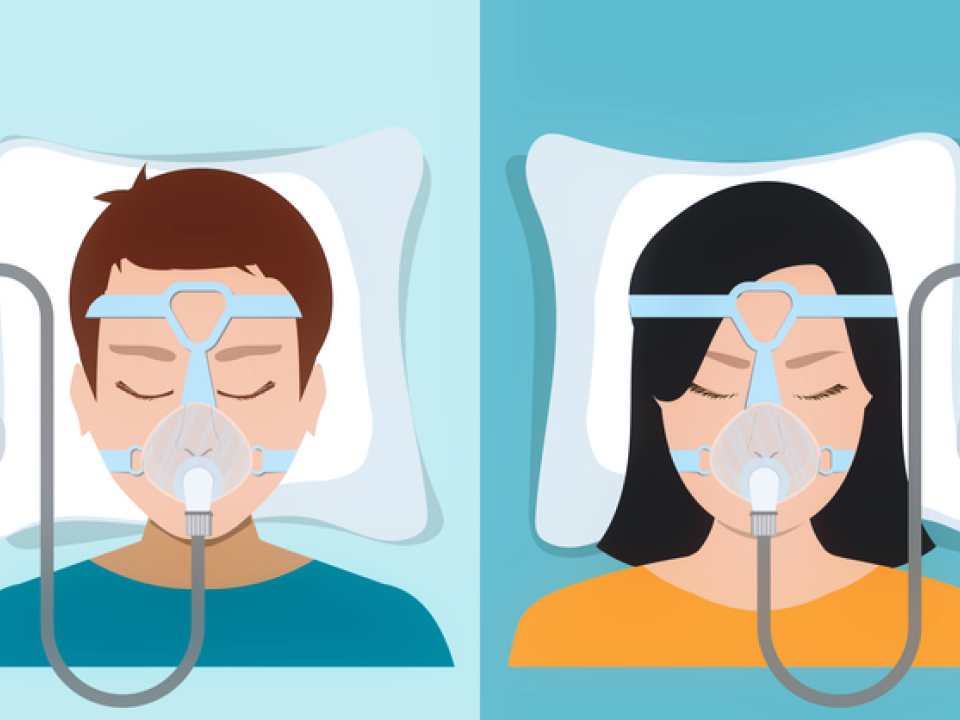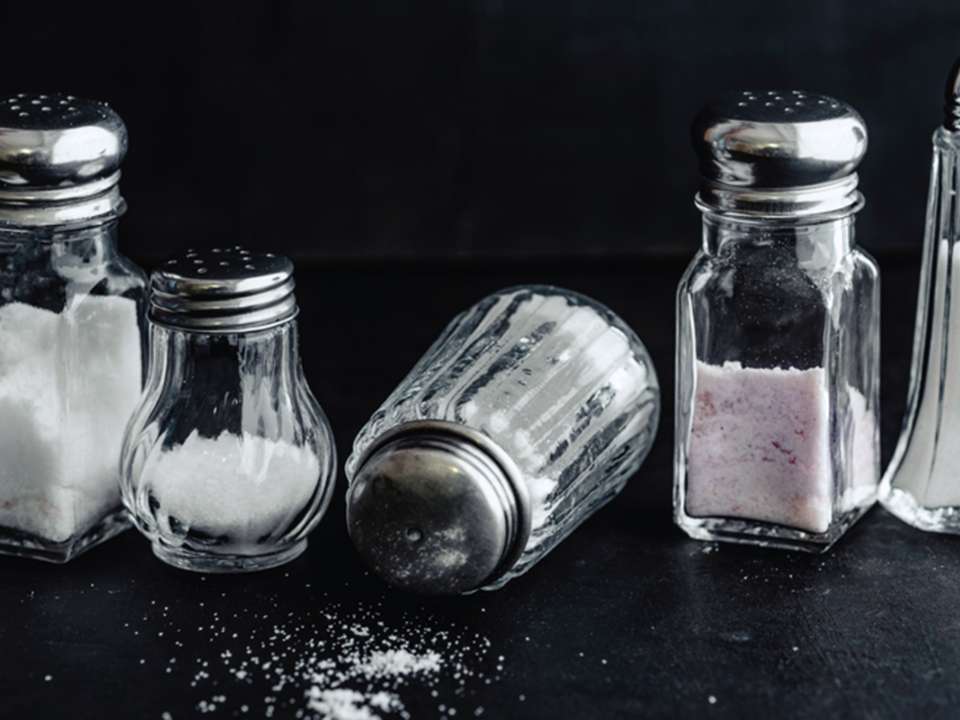Trying to Get Pregnant? These Fertility-Boosting Foods Can Help

So you’re finally ready to expand your family.
You’ve stopped using birth control, are dutifully tracking your ovulation cycle and enjoy getting busy with your partner on the regular. No complaints there.
But, ugh, you're still getting your period every month. Now what?
First of all, try not to stress. It can take as long as a year for perfectly healthy couples to conceive. But if you’re still trying after 12 months — or six months if you’re 35 or older — it may be time to visit your doctor to see what’s going on.
“About 10 to 15 percent of couples have challenges with fertility,” explains Judy Simon, M.S., R.D., a registered dietitian-nutritionist at University of Washington Medical Center-Roosevelt who specializes in women’s reproductive health. “It can be a male issue, it can be a female issue or it can be both.”
After meeting with your doctor, you may find you have a condition like endometriosis or polycystic ovary syndrome that can cause fertility issues and hinder your chances of getting pregnant. If that’s the case, consult with a fertility expert to determine the best course of action for you, whether that’s looking into in vitro fertilization or trying another treatment option.
But if those factors aren’t at play and you simply want to boost your chances of conceiving naturally, simple diet and lifestyle changes can help.
“Nutrition and lifestyle can be one of the first lines of fertility management,” Simon explains. “We want to make sure that men and women who are three months prior to conception are eating healthy diets, and we want to make sure that any chronic diseases are managed with lifestyle changes.”
To give yourself the best possible start on your journey to baby bump, here are Simon’s top fertility-friendly nutrition tips.
Eat the right foods for fertility
No surprise here: What you eat affects your weight and overall health. But what you may not be considering is that your diet also has a huge impact on your chances of conceiving.
In one study, researchers noted that adhering to a diet rich in fruits, vegetables, whole grains, full-fat dairy and “good” fats like the ones found in avocados and fish reduced a woman’s infertility risk by as much as 66 percent.
“They found that eating a more plant-based diet, eating more whole grains and beans instead of sugars and candy, and drinking more water instead of soda were predictive of better chances of fertility,” Simon explains.
So, yes, your daily cola fix may be one of the reasons why you’re having trouble conceiving.
In fact, a recent study found that women who consumed three or more sodas per day had a 52 percent lower rate of pregnancy than their soda-shunning peers. The thinking here is that soda’s high sugar content puts a serious drag on fertility.
And it’s not only your eating habits that matter — your partner’s diet does, too.
According to that same study, diets high in saturated fats and red meats result in lower semen concentrations in men. On the other hand, men who follow a fertility-friendly diet based on plants and whole grains end up with healthier swimmers.
“When you’re including fruits and vegetables and a variety of whole grain, you’re going to get the most antioxidants,” Simon says. “People don’t have to go on any fad diets — just trying to get greens, grains and fruits can be really beneficial.”
Maintain a healthy weight
Your eating habits also tie into another major fertility factor: your weight.
According to the American Society of Reproductive Medicine, 12 percent of all infertility cases are caused by a woman either weighing too much or too little.
“It’s not just with conceiving,” Simon says. “We know that with higher weights there are higher miscarriage rates. And with lower BMIs, they may have hypothalamic amenorrhea, which means they have a lack of available energy so they’re not able to get pregnant.”
It works like this: Women who have too much body fat produce extra estrogen, which sort of acts like birth control. On the other side of things, women who weigh too little aren’t able to produce enough estrogen, so their reproductive system effectively shuts down.
“The body often protects women and says, ‘Oh, there’s not enough food for the reproductive function, so we can cut down on that,’” Simon explains.
In addition to following a healthy diet and exercising regularly, it’s important to check with your doctor — no matter what your weight is — to make sure you’re getting the adequate nutrition your body needs to conceive.
And, as always, same goes for the fellas.
“We know that we see poor-quality semen in men that are more obese and have chronic metabolic issues like diabetes and high cholesterol,” Simon notes. “Men on the other extreme are over-exercising and don’t often have enough nutrition for healthy sperm.”
Get enough nutrients like folic acid
Just as pregnant mamas take prenatal vitamins to ensure they’re getting all the nutrients they need for baby’s development, aspiring mamas should, too.
“We know that taking a prenatal with folic acid is predictive of higher conception rates,” Simon says.
She suggests taking a prenatal vitamin as early as three months before you want to start trying to get pregnant. This not only boosts your fertility, it also guarantees you have the proper nutrition in your system to support baby’s neural development once you do conceive.
You should also make sure you’re getting enough omega-3 fatty acids, zinc and antioxidants. Most of these nutrients you should be able to get from a healthy diet alone, but if you’re concerned, ask your doctor if it’s appropriate to take a supplement.
Limit your exposure to BPA and endocrine disruptors
Along with what you’re eating, Simon says it’s also important to pay attention to environmental factors that can be affecting your body.
Plastic items, food wrappers and even certain cosmetics and bath products can contain phthalates, parabens and BPA. These chemicals disrupt your body’s endocrine system, which controls hormones like estrogen that are essential to fertility.
“Our environment makes a difference,” Simon notes. “We’re trying to reduce exposure to endocrine disruptors, and when I talk to people in a fertility setting, I’m encouraging them to avoid heating up food in BPA plastics, to drink out of stainless steel bottles and to try to store their food in glass containers.”
Quit smoking cigarettes and marijuana
If you still light up — with the promise that you’ll stop once you’re pregnant — think about advancing that timeline ASAP.
Smoking isn’t just bad for your health and your baby’s health, it can also decrease ovarian reserve, your ovaries’ capacity to provide healthy egg cells for fertilization.
And your partner? Well, he’s not off the hook either. His sperm become slower, less effective and less plentiful if he’s lighting up on a regular basis.
While there isn’t as much research available on vaping and marijuana as there is on cigarettes, some studies show that these substances do negatively affect fertility and sperm quality.
Basically, when in doubt, snuff it out.
Consider easing up on alcohol and caffeine
When it comes to things like alcohol and caffeine, Simon says the science is a little less definitive.
“Results are inconsistent for caffeine and fertility,” she notes. “Alcohol’s impact on fertility is questionable, but its impact on fetal development is proven.”
If you want specific guidelines, she recommends sticking to 200 milligrams or less of caffeine per day — that’s about one 12-ounce cup of coffee — and avoiding alcohol entirely if you think you could be pregnant.
Don’t buy into fertility myths
Simon’s final tip is to not give too much weight to those much-hyped fertility myths that don’t have a ton of science to back them up.
“Somehow pineapples have become these fertility symbols,” she says. “People always think that pineapple cores help with implantation — that’s not true.”
Trying to lose weight quickly to guarantee a cycle doesn’t work either, and neither do special fertility herbs and supplements like royal jelly.
“People spend a lot of money on these things, and they aren’t really proven,” Simon explains. “What’s really important is that if you have these questions, talk to your doctor.”

 Healthy ideas for your inbox
Healthy ideas for your inbox





